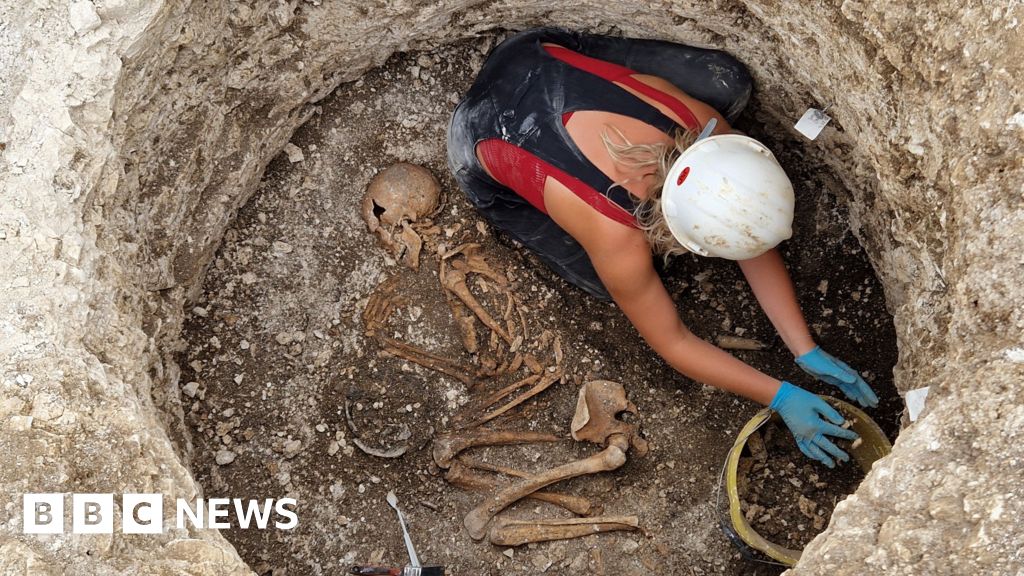ARTICLE AD BOX
CCTV footage from a recycling plant shows what is believed to be exploding batteries shooting across the room
By Victoria Gill and Kate Stephens
BBC News Climate and Science
Batteries thrown in household rubbish bins cause about 700 fires every year in dustcarts and waste-processing centres, local authorities say.
Lithium-ion batteries can explode if damaged or crushed.
The Environmental Services Association says resulting fires cost fire services and waste operators some £158m a year.
Non-profit organisation Material Focus, which surveyed local authorities, runs an online search tool to help people find their nearest recycling point.
Found in small, rechargeable devices such as toothbrushes, toys, phones and laptops, lithium-ion batteries have become more powerful in recent years.
Smaller, frequently used and cheaper devices - even some musical greeting cards - often have "hidden batteries".
Ben Johnson, from the Environmental Services Association (ESA), told BBC News "more and more people were putting devices containing these batteries in with household rubbish" or mixing them with other recycling.
"That causes a real problem, because they have a tendency - when damaged - to explode or ignite," he said.
"And when you put them in general rubbish or recycling, they're likely to be crushed, compacted, smashed or they might get wet.
"That can cause them to short-circuit. And of course they're then in the presence of other flammable material like plastic, paper and card and that can lead to quite big fires."
Image source, Shore Recycling
Image caption,A fire at a waste recycling facility
Lithium-ion batteries
The main type of rechargeable battery in portable consumer electronics, they consist of two electrodes divided by a separator that allows charged particles - lithium ions - to flow, through a solvent, from one to the other.
Recharging the battery pushes the ions back to where they started.
If the battery is intact and contained, it is generally very safe.
But if the electrodes make direct contact with each other, it can cause all the charged particles to suddenly discharge in an explosion, which, as the chemicals inside the battery are flammable, can quickly cause a fire.
The source of a major fire at a recycling centre in Aberdeen was not confirmed but the company says it was most likely linked to a discarded battery
National Fire Chiefs Council waste-fires lead Mark Andrews said the problem was growing as people used and disposed of more electronic devices.
"We urge people to recycle electricals and batteries and not to dispose of them with general household waste," he said.
"These fires can be challenging for fire services to deal with, have a significant impact on local communities and present a real risk to staff working on lorries and waste plants.
"Everyone can do their bit and prevent fires by ensuring they dispose of electrical items correctly."
Laura Fisher, from waste-management company FCC Environment, said: "The best thing is for people to bring any batteries to their local recycling centre or to any major supermarket - most of them tend to have a recycling bin for batteries there."
Fire safety experts and electrical-waste campaigners are also calling for clearer rules on the safe disposal of batteries - including how to recycle them. The government has now delayed a consultation on this issue until 2023.

 2 years ago
52
2 years ago
52








 English (US) ·
English (US) ·